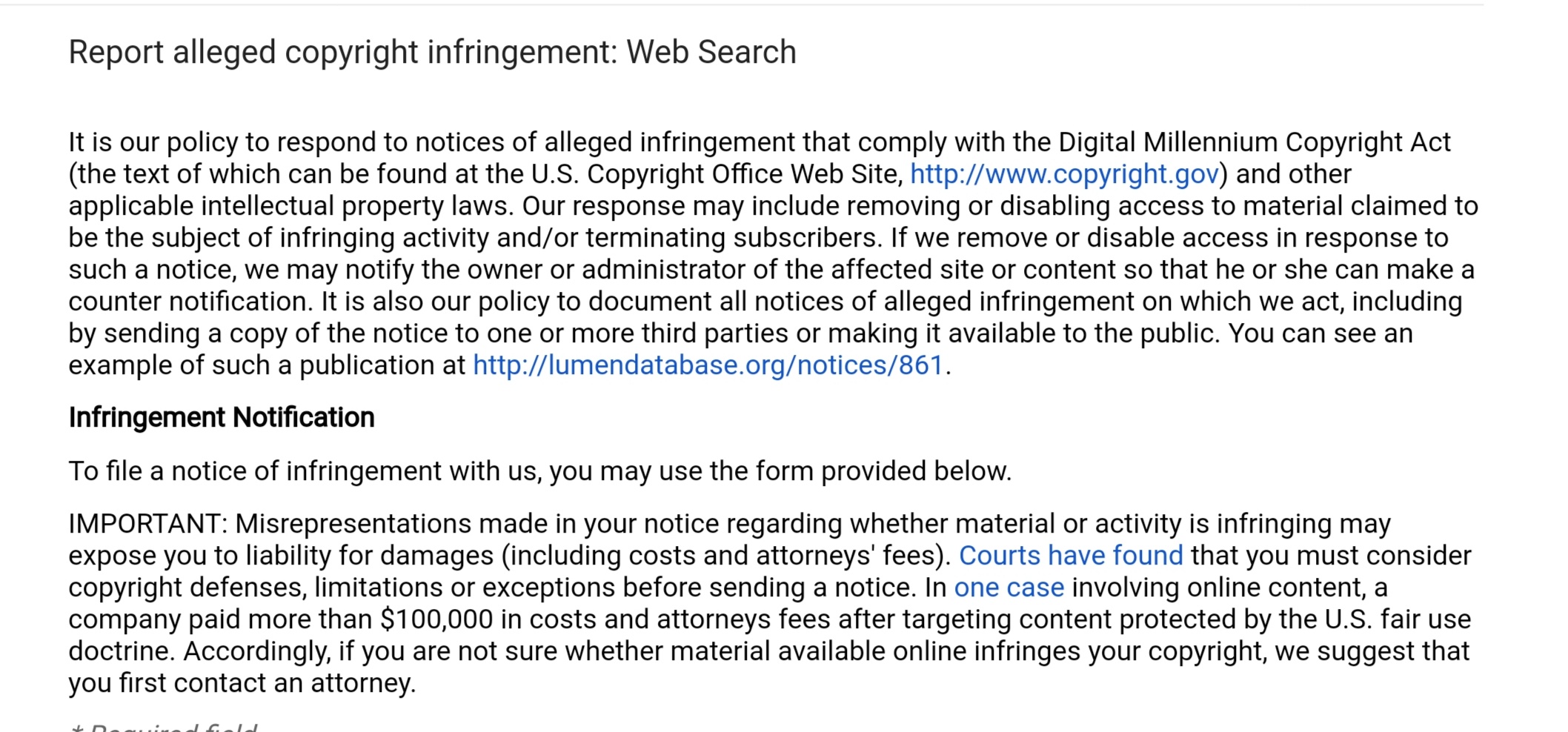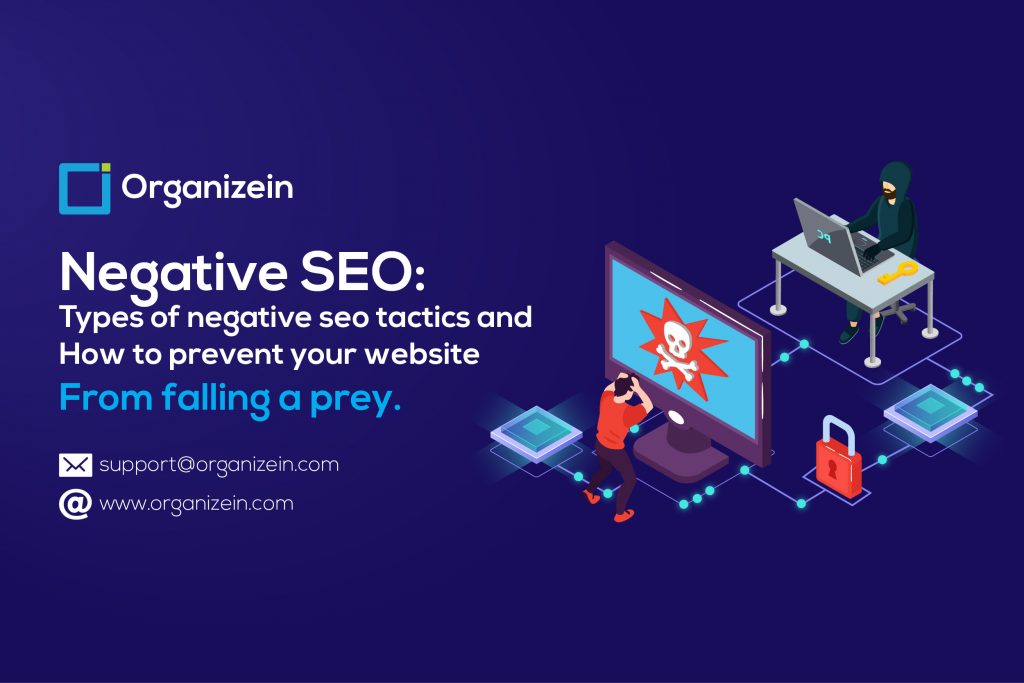Search engines do everything in their capacity to curtail the effectiveness of black hat SEO and prevent scandalous agencies from using the type of strategy. However, while the use of black hat SEO for promoting a website is lessening in popularity, using negative SEO tactics to attack other sites is gaining popularity.
Negative SEO techniques are present in the landscape of digital marketing in a variety of indecent shapes. Some of them are soft and evolve over time, while others are soon noticeable by all. We bring you a detailed blog piece dedicated to the negative aspects of SEO in practice and how to prevent using them.
What is negative SEO?
Negative SEO is a technique utilized by some businesses to damage the rankings and organic traffic gained by other websites in search engine results.
Defining specific types of negative SEO techniques can be a complicated process keeping in mind the different tactics used by black hat scammers. However, a basic knowledge of commonly used white hat SEO strategies helps you out here. This can give you an insight into how the same techniques are exploited by disreputable organizations to affect the traffic of other worthy websites.
Here are 4 types of negative SEO techniques commonly in practice:
Link Farms
One of the most common forms of negative SEO is the use of link farms (a group of interconnected sites) to create a bunch of poor-quality, spammy links leading to a website. Professionals using black hat SEO build the links to a particular website to which they aim to cause intentional harm.
These spammers build a series of negative SEO backlinks by reposting similar content with typically the same anchor text on low-quality websites. The anchor text might be completely unrelated to the targeted website or include a niche keyword. The process can look like a poorly executed link building campaign by the targeted website from the searcher’s perspective.
Solution- Prevention is always a better solution than cure. Proactively monitor to catch any backlink campaign running on your website by such spammers. Use backlink checkers to keep a check on links directing to your website. Submit a file of disavow links to Google listing the attacking domains to protect your site against them.
 Scraping content across multiple websites
Scraping content across multiple websites
One of the other unethical ways competitors resort to ruin your rankings is scraping your content and copying it as their own or putting it up on multiple other sites. This is done with the intention of stealing content in order to boost the spammer’s low-quality website.
Search engines prefer to rank only of the copied content that has been posted on various sites. Google is usually good at identifying the original content and prefers ranking it in the search results. However, the chances of the duplicated content are still present. In that case, your website is at the risk of getting punished in terms of rankings in the search results.
Content marketing has over time acquired a broadened and competitive scape. In the times when it takes a lot of effort and time to generate quality SEO content and blog posts, this type of practice can be demoralizing for content creators ripping them off of any due credits for their work.
Solution- Bring the stolen content to the attention of the webmaster to prevent your original content from being punished. If the move does not turn out to be effective, report the issue to Google’s copyright infringement report. This ensures that Google acknowledges the originality of your content and does not penalize your search rankings for duplication.

Posting fake reviews
Several competitive sites go after hitting the reviews of a business page to portray a negative image of the organization. These false reviews lead to low ratings and ultimately low sales. This is because, for every star lost in online reviews, businesses notice a whopping fall in their sales. This case is even worse when seen in comparison to other negative SEO tactics that only affect your search results rankings.
Solution– Check for a sudden hike in negative reviews for your website. One can distinguish false reviews from genuine ones by taking a look at them. Fake reviews are generally very short in length (one-two words) and are posted within a short span of time ( repeatedly in a few hours or days). Flag the fake reviews so that search engines identify them and do not affect your rankings.
Modifying your website by hacking into them
Subtle modifications made to your website by hackers are difficult to spot. But they do contribute to demoting your site in search results. Hackers can often modify the content on your website in various ways such as:
- Adding inappropriate content to your pages.
- Add spammy low-quality links to the pages
- Remove images and other multimedia to decrease engagement on your pages
- Redirect searchers to their website ( works well when you have a reputable digital market presence)
These hackers hide the modifications done in the HTML so that the owners get to know of them only when they look into the code.
Solution- Closely monitor your website and conduct regular site audits to keep a check on visible changes. Look for a sudden rise in engagement on dormant pages on your site. Notice the outgoing links and site with redirects that you would not link to otherwise.
Negative SEO is a threat to all businesses over the web as attackers continue to target competitive websites with unethical ways instead of raising their own rankings. One cannot avoid an attack. But one can closely keep a check on their website to prevent much harm to the rankings and sales. Use the right tools as soon as negative SEOs target your site and prevent the damage as much as possible.
